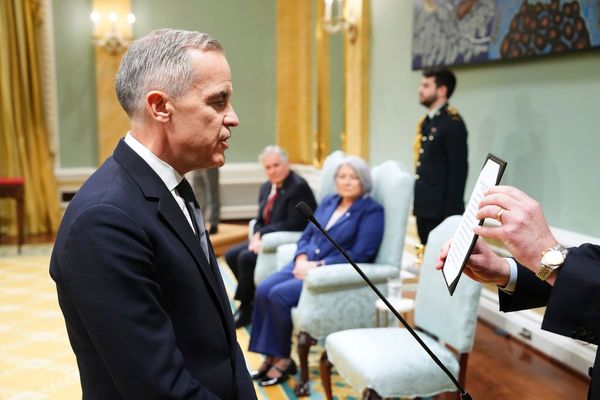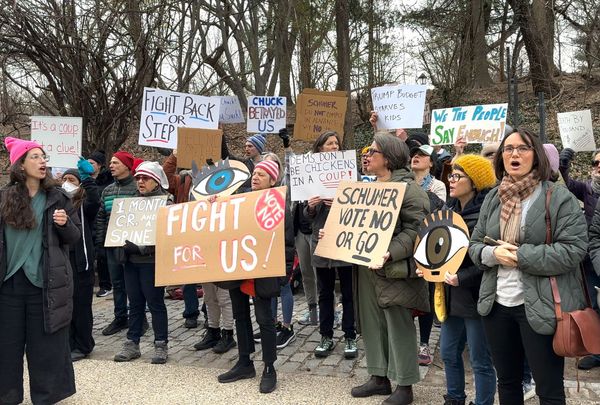[I'm working on a draft article called When Are Lies Constitutionally Protected?, and I thought I'd serialize it here, since I still have plenty of time to improve it; I'd love to hear your thoughts on it! (You can also read the whole article here; all the posts about it will go into this thread.)]
We see, then, that courts are generally allowed to determine whether a statement about an individual is true, or whether a statement said to government officials is true, or whether a statement aimed at getting money is true. They are generally not allowed to determine whether a statement about the government, or about history or science, is true (at least in the context of punishing speech, as opposed to litigating nonspeech claims). What happens, though, at the intersection of those two categories?
Say, for instance, that someone testifies before a grand jury—or even just tells government investigators—"I saw a police officer beat John Smith," even without any reference to a specific police officer. If a prosecutor believes that the witness knowingly lied, could such a statement lead to a perjury or false statement prosecution? Or say that someone makes the same claim in a fundraising letter ("Give money to the Anti-Police-Brutality Foundation, so we can deal with abuse such as the police beating of John Smith"). If a prosecutor or a consumer protection agency claims that the author knowingly lied, could such a statement lead to a fraud prosecution?
Or let's take an example of a speech that is not within an existing First Amendment exception, but that would likely be restrictable under intermediate scrutiny, the test adopted by the controlling Alvarez concurrence: Someone files an unsworn complaint with the police department, claiming the police beat him. If the prosecutor believes this is a knowing lie, could this lead to a prosecution for filing a false police report? (Three Justices of the Minnesota Supreme Court recently suggested the answer is "no."[1])
The same questions arise not just with statements alleging government misconduct, but also with statements about "history, the social sciences, the arts, and other matters of public concern." The government may not ban newspaper articles about whether or not human activity is warming the Earth, or about whether there are biological differences between the sexes' or races' cognitive faculties. But say that a scientist testifies in court that his study showed that there are or are not such biological differences (perhaps in supporting or opposing an argument that a disparity between an employer's workforce and its applicant pool stems from real differences in applicant quality and not from discrimination). Could he be prosecuted for perjury if there is evidence that he had deliberately falsified his research results?
Or say the scientist applies for a grant, or seeks contributions from the public, based on his claimed medical discoveries—could he be prosecuted for fraud if it is shown that he has admitted to friends that the discoveries are fake, or at least that the effects he claims are overstated? The Third Circuit, for instance, has held that a writer of a book about the Pope could be prosecuted for defrauding his publisher by falsely claiming to have conducted interviews with his subject. But several judges dissented, arguing that courts ought not pass judgment on the accuracy of claims in books, even when the falsehoods were seen as defrauding not just consumers but also the publishers.[2]
In all of these situations, one can still say that "it is perilous to permit the state to be the arbiter of truth"—just as it would be perilous if the government tried to generally ban lies about itself, about science, about history, and about other "matters of public concern." Prosecutors, judges, and juries may often be unreliable evaluators of what is a knowing lie and what is an unorthodox truth in such matters. And that's true in a perjury, fraud, or false statement prosecution as much as in a hypothetical prosecution for seditious libel, racial libel, or Holocaust denial.
Thus, for instance, say someone wants to raise money for a foundation that would reject claims that the Ottoman government deliberately engaged in genocide of Armenian civilians during World War I. Doubtless in his fundraising letters the speaker would assert that the Armenian genocide did not in fact happen. Yet if the government then prosecutes the speaker for fundraising fraud, this would pose much the same kind of threat to free debate about history that the Court was concerned about in Alvarez.
At the same time, disabling the government from prosecuting such lies (or, in some instances, allowing civil liability based on such lies) when those lies lead to tangible financial injury, or interfere with court proceedings or police investigations, can leave a good deal of harm unpunished and undeterred. This is why when it comes to individual libel, the harms of which are intensely focused on particular people, the Court allowed liability for knowing lies and rejected an argument for categorical protection. Again, the concurring Justices in New York Times v. Sullivan made such an argument, precisely on the grounds that the legal system can't be trusted in determining the truth or falsehood of allegations on matters of public concern (especially allegations about public figures). But the majority refused to go along.
Likewise, when it comes to religious claims, the Court has long recognized that the government may not be an arbiter of truth. But the Court has nonetheless allowed fraud prosecutions based on a showing that someone seeking religious donations is knowingly lying about his supposed religious experiences and miraculous healing powers. That was the holding of United States v. Ballard in rejecting a Free Exercise Clause defense to a fraud prosecution,[3] but the logic of the Court's analysis would apply to a Free Speech Clause defense as well.
This question has so far been little explored, and my views on it are tentative. But it seems to me that such lies should be punishable at least when they (1) constitute fraud, perjury, false statement to government officials, or some other generally punishable sort of lie, and (2) are claimed to be based on personal knowledge.
Lies that are supposedly based on personal knowledge—"I saw the police beat John Smith," "I conducted my experiments this way," "I have healed the sick by laying on my hands," "I interviewed the Pope for my book"—tend to be particularly dangerous. Speakers who claim first-hand knowledge of some incident are essentially claiming to have superior expertise about the incident: They were present, and (usually) very few other people were. As a result, people considering the matter tend to feel inclined to take such eyewitness claims seriously.
In such situations, it's especially important that lies be deterred and punished by the legal system. The lies are potentially more harmful, or at least more directly harmful, than mere allegations in newspapers, because they involve attempts to get money, attempts to deceive the judicial process, or attempts to distract government officials in their investigations. And the lies are potentially more harmful than broad assertions not based on personal knowledge (e.g., claims that the Armenian genocide did not happen), precisely because the speaker's claim of first-hand knowledge is especially likely to be believed, and is especially hard to rebut.
On the other hand, someone who is yet another voice on the subject of the Armenians in World War I, the JFK assassination, or racial differences is only one source among many. Most listeners, especially ones whose job it is to evaluate his statement (such as government officials) or whose money is on the line (such as book publishers), will give the person's claims comparatively little credit—why credit them more than all the other experts' claims?—and will find it relatively easy to find other sources on the subject, precisely because the speaker is just one claimed expert among many.
With this, this series of posts concludes; thanks for reading!
[* * *]
[1] State v. Crawley, 819 N.W.2d 94, 120–25 (Minn. 2012) (Stras, J., dissenting) (concluding that even such "knowing falsehoods" are presumptively "entitled to protection under the First Amendment," and restrictions on them are "unconstitutional unless [they] can survive strict scrutiny"). The dissenters concluded that the statute "also fails to survive constitutional scrutiny because … [it] is viewpoint discriminatory," id. at 126, but that was an independent ground for the dissent's conclusion.
[2] In re Grand Jury Matter (Gronowicz), 762 F.2d 983 (3d Cir. 1985).
[3] 322 U.S. 78 (1944).
The post Lies About Science, Government, Etc. in Specific Libel or Fraud Lawsuits appeared first on Reason.com.







